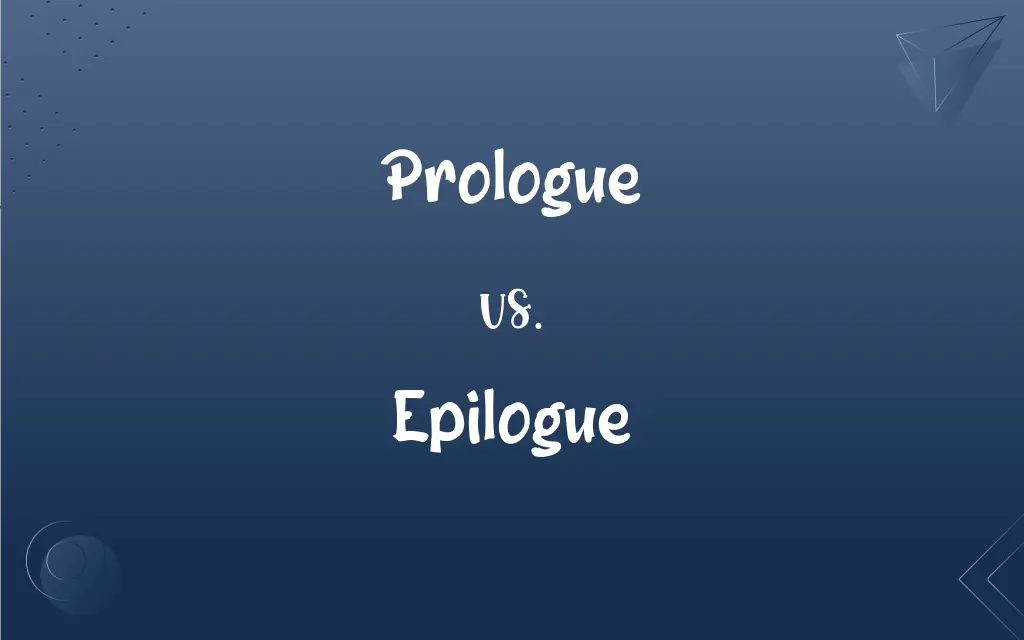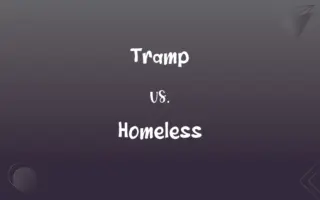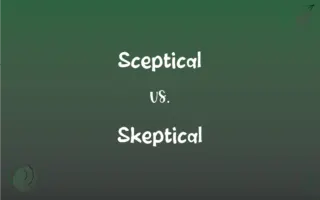Prologue vs. Epilogue: What's the Difference?
Edited by Aimie Carlson || By Harlon Moss || Updated on October 26, 2023
Prologue introduces a story; epilogue concludes it.

Key Differences
A prologue and an epilogue are literary devices often found in novels, plays, and other narratives. The prologue, typically situated at the beginning of a work, sets the stage, introduces readers to the story, or provides critical background information. The epilogue, on the other hand, is found at the end, offering closure or additional insights into the aftermath of the story's events.
While the prologue serves to ground readers in the world the author has created, the epilogue provides a glimpse beyond the main story, possibly hinting at what might come next or wrapping up loose ends. Both devices help shape the overall narrative experience, but they have distinct roles and purposes.
The prologue might include details about the setting, characters, or previous events that are crucial to understanding the story. By contrast, the epilogue might touch upon the future lives of the characters, resolve any lingering questions, or tease a sequel.
In terms of their importance, neither a prologue nor an epilogue is strictly necessary for a narrative to be complete. Some authors might choose to employ both, one, or neither. While the prologue hooks readers from the start, the epilogue can leave a lasting impression long after the story has ended.
Comparison Chart
Position in the narrative
At the beginning
At the end
ADVERTISEMENT
Purpose
Introduces background, setting, or characters
Provides closure, resolves loose ends
Temporal Perspective
Often before or at the onset of main events
Usually after the main events
Indication
Sets the tone or mood
Reflects on the story or indicates future possibilities
Necessity
Not always required but can enhance understanding
Not always required but can offer added closure
Prologue and Epilogue Definitions
Prologue
An event or act that leads to a more important one.
The diplomatic meetings were a prologue to the peace treaty.
ADVERTISEMENT
Epilogue
A speech or short poem addressed to the audience at the end of a play.
The actor's heartfelt epilogue earned a standing ovation.
Prologue
A speech or poem recited at the beginning of a play.
The actor's recitation of the prologue captivated the audience from the start.
Epilogue
The final chapter that ties up loose ends or hints at a sequel.
The thrilling epilogue left readers eager for the next book in the series.
Prologue
A preliminary discourse in a speech or text.
The speaker began with a prologue detailing his qualifications on the topic.
Epilogue
A section at the end of a book or play that provides a conclusion or commentary.
The epilogue revealed the protagonist's life ten years later.
Prologue
A preface or introduction to a book.
The author's prologue provided a personal touch, sharing her inspiration for writing.
Epilogue
A reflective afterword in a literary work.
The author's epilogue provided insights into the challenges of writing the novel.
Prologue
An introductory section of a literary work.
The prologue set the historical context for the novel.
Epilogue
The concluding part of any performance or activity.
The fireworks served as a brilliant epilogue to the night's festivities.
Prologue
An introduction or preface, especially a poem recited to introduce a play.
Epilogue
A short poem or speech spoken directly to the audience following the conclusion of a play.
FAQs
What is a prologue?
A prologue introduces the setting, background, or characters at the beginning of a literary work.
How long is a typical prologue?
Prologue lengths vary, but they're generally shorter than standard chapters.
Can a prologue be a separate story?
While prologues often relate directly to the main story, they can sometimes stand as separate but relevant tales.
Can an epilogue be emotional or reflective?
Yes, epilogues often convey emotions or reflections on the narrative's events.
Should an epilogue resolve all unanswered questions?
Ideally, an epilogue provides closure, but it's not obligated to answer all questions.
What purpose does an epilogue serve in a series?
An epilogue can provide closure for one book while setting up events for the next.
Can a book have both a prologue and an epilogue?
Absolutely, many books employ both devices for introduction and closure.
Are prologues and epilogues common in all genres?
They're found across genres but may be more prevalent in some, like fantasy or historical fiction.
Can a prologue be skipped?
While possible, it's not recommended as prologues contain valuable information or tone-setting.
Is a prologue necessary?
No, a prologue isn't mandatory but can enhance understanding or set the mood.
What's the main difference between a prologue and a preface?
A prologue is part of the story, while a preface discusses the book's creation or purpose.
What is an epilogue?
An epilogue is a section at the end of a literary work providing closure or a glimpse into characters' futures.
Is an epilogue the same as a conclusion?
Not exactly. While both provide closure, an epilogue often delves into events after the main story.
Can a prologue be in a different time setting than the main story?
Yes, prologues often cover events before the main narrative.
Why might an author choose to include a prologue?
To offer critical background, set the tone, or hook readers from the start.
How should readers approach a prologue?
As an integral part of the story, offering clues or context to enhance understanding.
Can an epilogue hint at a sequel?
Yes, epilogues can tease future stories or developments.
Do all books have epilogues?
No, not all books have epilogues; it's an author's choice.
Can an epilogue be written from a different character's perspective?
Yes, an epilogue can shift perspectives to offer varied insights.
About Author
Written by
Harlon MossHarlon is a seasoned quality moderator and accomplished content writer for Difference Wiki. An alumnus of the prestigious University of California, he earned his degree in Computer Science. Leveraging his academic background, Harlon brings a meticulous and informed perspective to his work, ensuring content accuracy and excellence.
Edited by
Aimie CarlsonAimie Carlson, holding a master's degree in English literature, is a fervent English language enthusiast. She lends her writing talents to Difference Wiki, a prominent website that specializes in comparisons, offering readers insightful analyses that both captivate and inform.































































